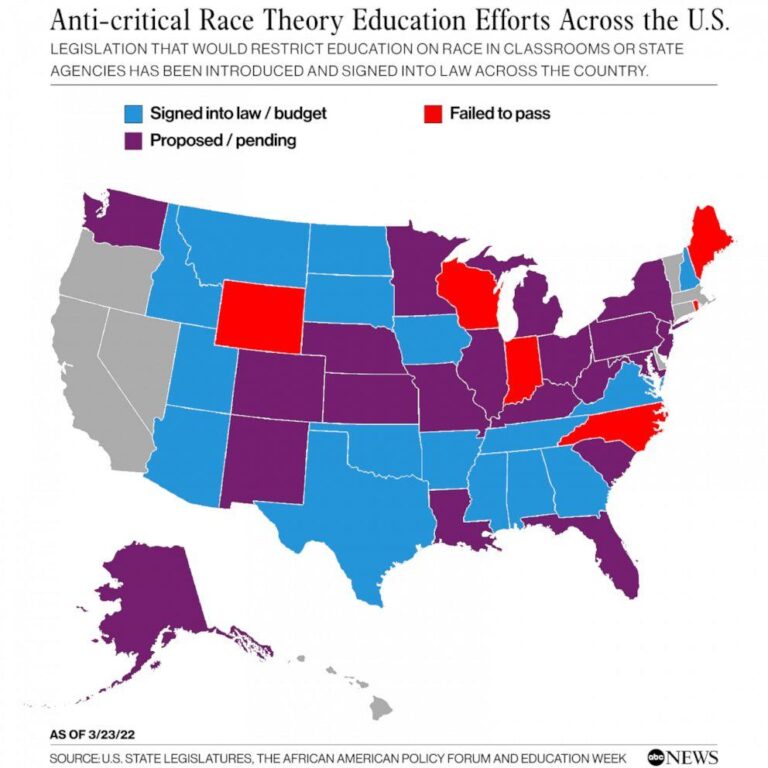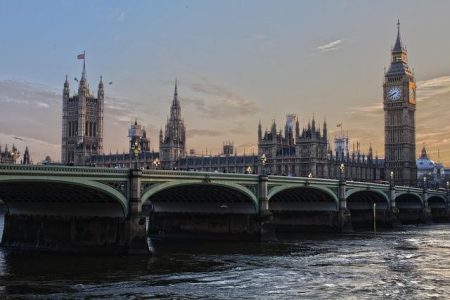Across the United States, efforts to restrict the teaching of ŌĆ£critical race theoryŌĆØ are gaining traction, sparking intense debate over educational content and academic freedom. From state legislatures to school boards, a wave of proposed bans and regulations aims to curtail discussions about systemic racism and its historical context in classrooms. Florida, in particular, has emerged as a focal point in this national trend, with lawmakers pushing measures to limit how race and history are taught. This article examines the growing movement to ban critical race theoryŌĆÖs inclusion in school curricula, its implications for educators and students, and the broader political and social controversies fueling the debate.
Growing Wave of Legislation Aims to Restrict Critical Race Theory in Classrooms
Legislators across multiple states have introduced an increasing number of bills aimed at limiting or banning instruction around critical race theory (CRT) in public schools. These measures generally seek to block teachings that discuss systemic racism, white privilege, or the role of race in American history and society. Proponents argue that such lessons are divisive and promote a negative view of the country, while opponents raise concerns about censorship and the erasure of important historical truths. Florida, Texas, and several other states lead the charge with some of the most comprehensive restrictions proposed or enacted.
Key Elements Commonly Found in CRT-Restriction Bills:
- Prohibition of teaching concepts related to race and racism being inherent or systemic
- Prevention of instruction that suggests individuals bear collective guilt based on race
- Requirements for school districts to adopt policies forbidding CRT-related content
- Mandates for parental notification and control over curriculum materials
| State | Status | Scope |
|---|---|---|
| Florida | Enacted | Comprehensive ban in K-12 public schools |
| Texas | Pending | Ban on CRT-related curriculum development |
| Georgia | Introduced | Restrictions targeting higher education |
Impact on Educators and Students Sparks Intense Debate Nationwide
The growing push to restrict discussions around critical race theory in classrooms has ignited fierce opposition from educators and students alike. Many teachers express concern that these bans undermine academic freedom and hinder efforts to address systemic inequalities. According to recent surveys, a significant portion of educators feel pressured to self-censor, which affects the overall quality of classroom dialogues on race, history, and social justice.
Students also report confusion and frustration, as curriculum changes vary widely across states and even local districts. Advocates for the bans argue they protect children from politically charged content, while opponents warn that limiting discussions prevents young people from developing a comprehensive understanding of societal issues. The debate has resulted in:
- Increased polarization within school boards and communities
- Sharp rises in educator resignations and burnout
- Disparities in access to diverse historical perspectives depending on geography
| Stakeholder | Primary Concern | Impact |
|---|---|---|
| Educators | Academic freedom & curriculum integrity | Increased self-censorship, job dissatisfaction |
| Students | Comprehensive education & critical thinking | Confusion, limited perspectives |
| Parents | Appropriateness of content | Divided opinions, school board activism |
Legal Challenges and Advocacy Groups Mobilize Against Teaching Bans
As states across the nation push forward with legislation to restrict the teaching of concepts linked to critical race theory, a wave of legal resistance has emerged. Civil rights organizations and educational advocacy groups are banding together to challenge these bans in courts, arguing that such laws infringe upon free speech and academic freedom. Several lawsuits are now underway, asserting that these restrictions undermine educatorsŌĆÖ ability to engage students in meaningful discussions about race, history, and systemic inequality.
Key advocacy groups have mobilized efforts to support teachers and school districts facing penalties for curriculum choices, emphasizing the importance of fostering an inclusive and truthful educational environment. Their strategies include:
- Filing lawsuits to contest unconstitutional teaching restrictions
- Launching public awareness campaigns to highlight the implications of the bans
- Providing legal aid and resources to educators caught in the crossfire
- Collaborating with policymakers to advocate for more transparent and equitable curriculum guidelines
| Group | Focus Area | Current Action |
|---|---|---|
| American Civil Liberties Union | Free Speech in Education | Filed lawsuits in 5 states |
| National Education Association | Supporting Educators | Legal support and advocacy |
| NAACP Legal Defense Fund | Racial Justice | Challenging discriminatory laws |
Strategies for Schools to Navigate Increasing Restrictions on Curriculum
In response to increasing legislative restrictions on curricular content, schools are adopting innovative approaches to ensure compliance while maintaining educational integrity. Engaging community stakeholders such as parents, local leaders, and educators in open dialogues about curriculum changes helps foster transparency and trust. At the same time, many districts are introducing professional development programs tailored to help teachers navigate sensitive or restricted topics, enabling them to adapt their lesson plans creatively without violating new mandates.
Another emerging tactic involves the strategic use of interdisciplinary teaching. By integrating elements of civics, history, and literature in a more holistic yet vetted manner, educators can present lessons on race, inequality, and social justice within broader thematic units. Below is a simplified overview of methods being employed:
| Strategy | Description | Benefit |
|---|---|---|
| Community Forums | Regular meetings to discuss curriculum updates | Builds trust and collective understanding |
| Teacher Training | Workshops on adapting content within legal boundaries | Empowers educators with compliant strategies |
| Interdisciplinary Units | Combining social themes across subjects | Promotes comprehensive education, avoids bans |
| Resource Auditing | Reviewing materials for compliance and inclusiveness | Ensures legal adherence without diluting content |
Closing Remarks
As debates over critical race theory continue to intensify across the United States, the movement to restrict or ban its teaching reflects broader cultural and political divides shaping American education. FloridaŌĆÖs legislation and similar efforts in other states signal an ongoing battle over how history and social issues are presented in classrooms. Observers suggest that the outcomes of these disputes will have lasting implications for educators, students, and policymakers alike as the nation grapples with questions of race, identity, and curriculum standards.









